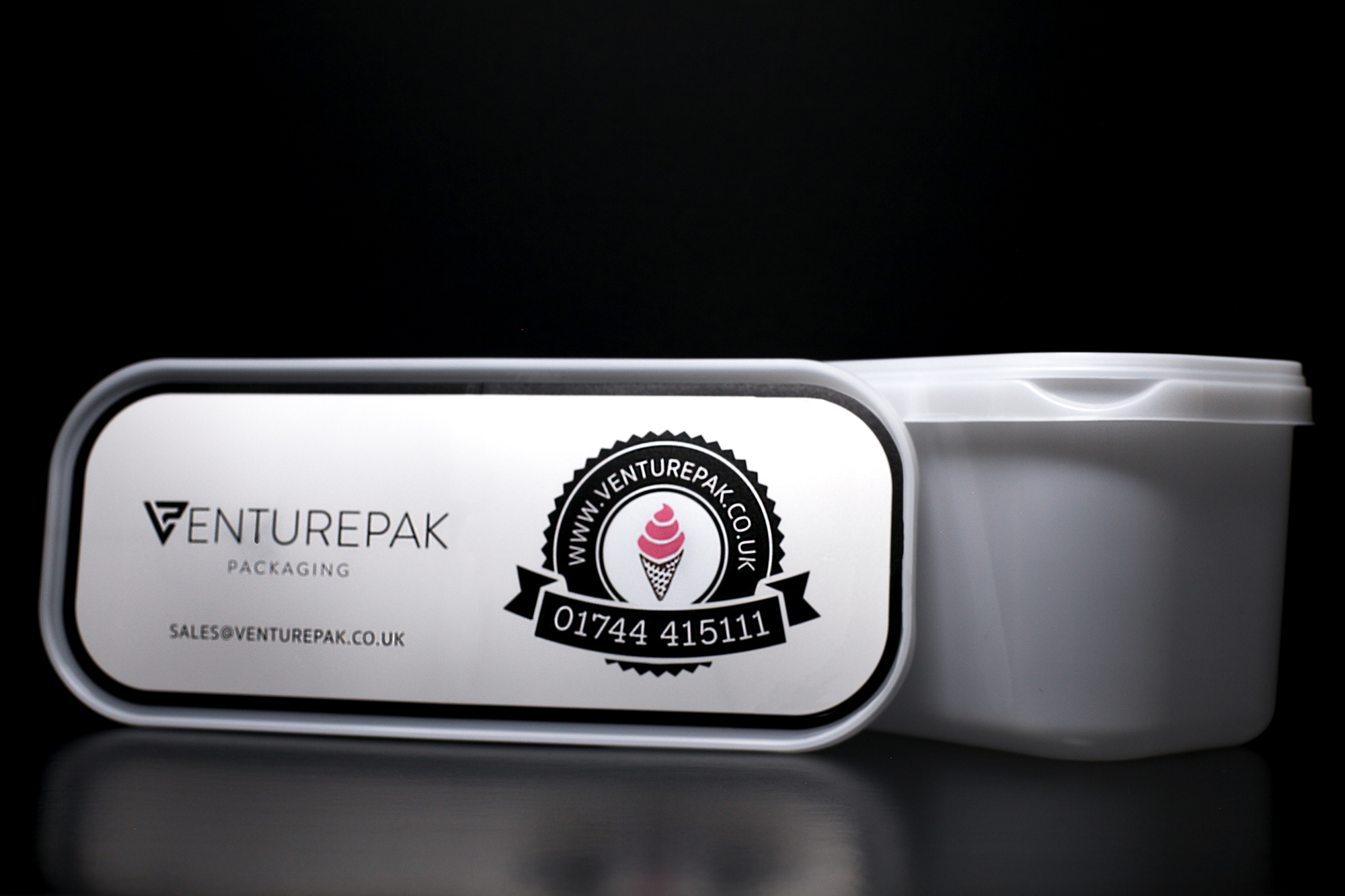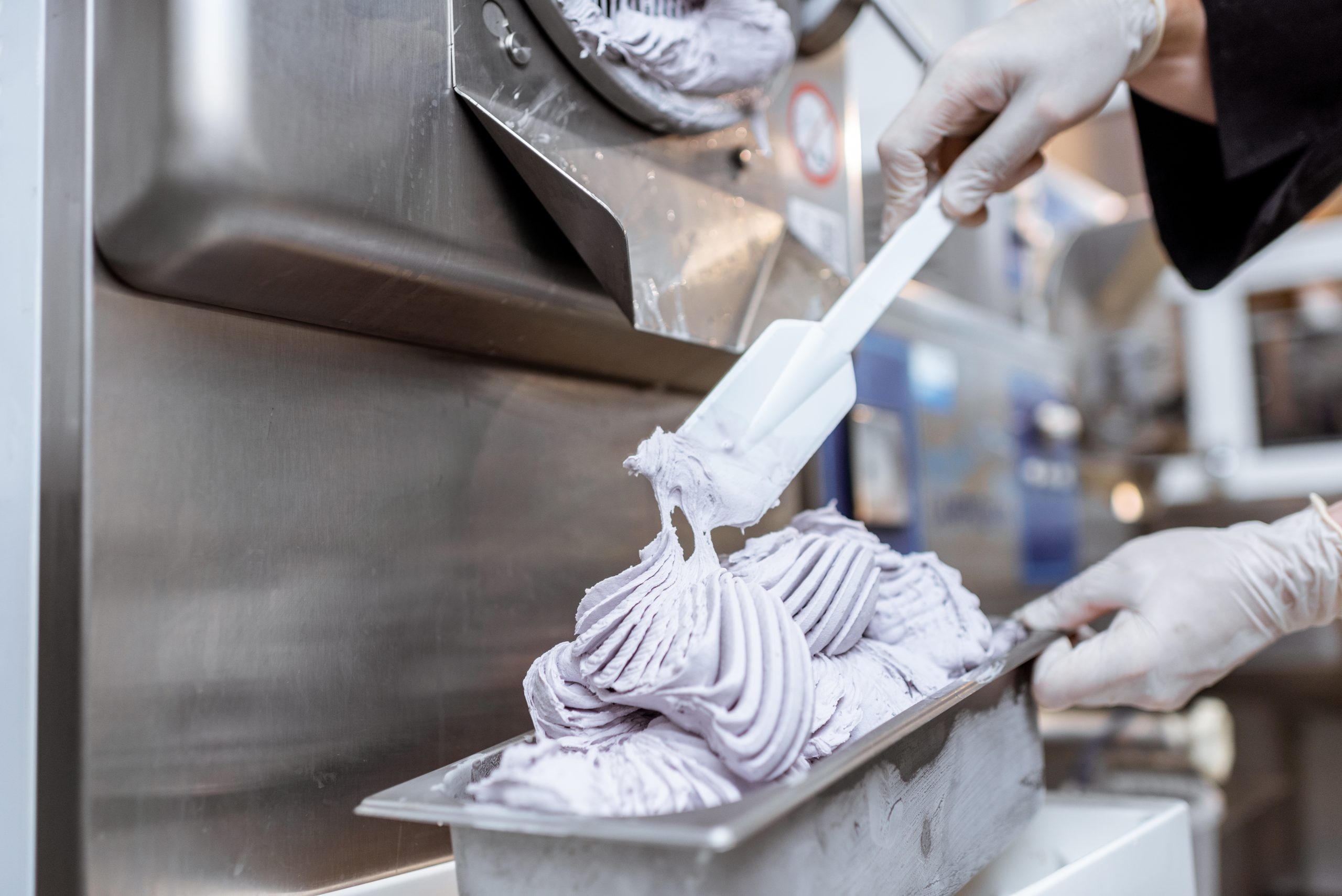We’ve all been there, right?
You take your ice cream carton out of the freezer, and are presented with something more akin to the iceberg that sank the Titanic than the beautiful creamy confection we all know and love.
In a domestic setting, this isn’t such a catastrophe. After all, we usually store ice cream at home in small quantities.
But imagine how much greater the frustration is when this happens in a restaurant?
Temperature is the key when it comes to storing ice cream so that it does not go hard (or indeed too soft).
Your ice cream should be cold, but also scoopable – not something that you need a pickaxe to break into!
The importance of correct ice cream storage
Ice cream is a perishable product and requires careful handling.
When exposed to temperatures above -12°C (10°F), everything from flavour, body and texture will be impacted.
The optimum temperature is -18°C (0°F), but any colder and you risk serving up ice cream that’s too hard.
As everybody knows, rock-hard ice cream is bad news but can be avoided if those storing it follow a few guidelines on ice cream storage.
What causes ice cream to harden in the freezer?
The common cause for ice cream to harden in the freezer is a simple one – the temperature is just too low.
If the temperature is below -20°C (-4°F), the ice cream can become overly hard and difficult to scoop.
Another reason why you get hard ice cream is because of something called freezer burn. This is when ice cream loses moisture and is exposed to the air.
You’ll notice certain changes in the look and texture of the ice cream if this happens. Maybe its colour will be transformed slightly, the texture will be grainier, and you’ll notice ice crystals have formed on the surface.
Ways of storing ice cream so it doesn’t go hard
Minimise thawing
When ice cream is constantly being taken in and out of the freezer, it thaws a little in the heat of the kitchen before refreezing once it’s returned to a colder temperature, thus creating ice crystals.
While it’s impossible not to keep opening the freezer in a busy kitchen, you can reduce the risk by storing ice cream as far back in the unit as possible.
Choose the right ice cream storage
We can’t stress enough the importance of storage to ensure ice cream is at its optimum best.
Food safe, able to withstand the necessary temperatures, and an appropriate size for the amount of frozen dessert must be taken into account.
Ensure lids are airtight
You’re wasting your time and effort making ice cream if you don’t opt for containers specifically designed for the purpose – that is, with a tight seal to prevent air exposure.
An airtight lid is key to storing ice cream as it will ensure the product inside will not oxygenate.
Check temperatures
It’s vital that you regularly monitor and adjust the temperature settings of your storage freezers and display cases to ensure that your ice cream does not go hard.
Freezers react to external temperature changes, so the setting it is on now may not be suitable if there’s a drop or rise in temperature.
Freezer burn hack
If ice cream has been opened and has partially melted on top, you can minimise the possibility of freezer burn with this hack: flip the container upside down with the lid securely fixed.
You should ensure that nothing is dribbling out before placing it back into the freezer where any runny remnants of ice cream will collect in the lid rather than turn to crystals.
Want to learn more? Our previous article titled ‘Tips on storing ice cream’ is a good place to start.
How to keep ice cream soft when freezing
Professional ice cream makers have blast chillers that deep freeze ice cream within minutes, and it’s this that keeps ice crystals small, ensuring that your frozen treat remains deliciously fresh and creamy.
However, not every small restaurant or supplier can afford such luxuries.
No worries; the right kind of storage container can speed up freezing, thus helping ice cream inside to retain its soft texture.
What you need is a container with a high surface area to volume ratio; that is, one that’s wide and flat so more of the ice cream is exposed to cold air.
The correct container for your ice cream can make a difference between a top tasting product and one that’s distinctly inferior.
Why not start your search by browsing our ice cream container range?










